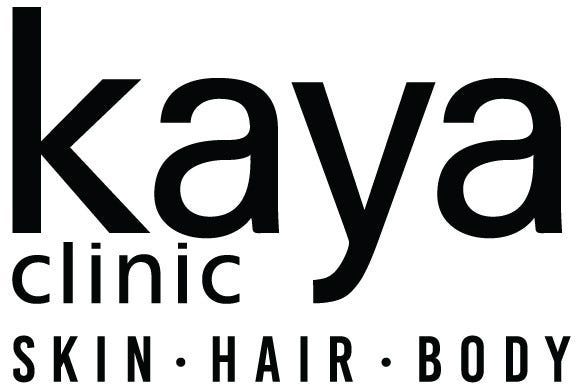Benefits of Beetroot for Skin : Beetroot Mask, Skincare Routine, Consumption

Introduction
Achieving a glowing, radiant complexion is a goal shared by many, and the secret to unveiling your skin's true beauty may lie in nature's bounty. Among the array of natural ingredients, beetroot stands out as a powerhouse of nutrients, offering a multitude of benefits for your skin's health and vitality. This vibrant root vegetable, with its rich hues and earthy flavor, has been cherished for centuries for its medicinal properties, and it's time to unlock its potential for your skincare routine.
In this blog post, we'll delve into the world of beetroot, exploring its unique composition and the scientific reasons behind its efficacy for promoting a radiant, youthful appearance. From combating the signs of aging to soothing inflammation, beetroot is a true superfood for your skin. So, let's embark on this journey together and discover how this humble root can transform your skin's vitality.
Understanding Your Skin Type
Before we dive into the wondrous benefits of beetroot, it's essential to understand your skin type. Identifying whether your skin is oily, dry, combination, or sensitive will help you tailor your skincare routine and choose ingredients that suit your specific needs.
Here are some quick tips to determine your skin type:
Oily skin: Your face appears shiny, especially in the T-zone (forehead, nose, and chin), and you may experience frequent breakouts.
Dry skin: Your skin feels tight and may appear flaky or rough, especially after cleansing.
Combination skin: You experience oiliness in the T-zone and dryness on the cheeks and other areas.
Sensitive skin: Your skin is prone to redness, itching, or irritation when exposed to certain products or environmental factors.
Understanding your skin type is crucial because it allows you to select ingredients that address your specific concerns without causing further irritation or imbalance.
Exploring the Science Behind Beetroot
Beetroot is a nutrient-dense root vegetable that boasts an impressive array of beneficial compounds for your skin's health. Let's take a closer look at the scientific breakdown of this vibrant ingredient:
Antioxidant Power: Beetroot is rich in betalains, a class of antioxidants that give the vegetable its striking purple-red hue. These powerful antioxidants help neutralize harmful free radicals, which can contribute to premature aging, fine lines, and wrinkles. By combating oxidative stress, beetroot helps to protect your skin's cells and promote a youthful, radiant complexion.
Anti-inflammatory Properties: Beetroot contains betaine, a compound known for its anti-inflammatory effects. Chronic inflammation can lead to various skin issues, including acne, redness, and irritation. By reducing inflammation, beetroot can soothe and calm the skin, promoting a more even and balanced complexion.
Skin Rejuvenation: Rich in vitamins C and E, beetroot supports collagen production, which is essential for maintaining skin elasticity and firmness. Collagen is a structural protein that gives your skin its youthful bounce and suppleness. By boosting collagen synthesis, beetroot can help diminish the appearance of fine lines and wrinkles, leaving your skin looking revitalized and radiant.
Hydration and Nourishment: Beetroot is an excellent source of essential nutrients, including vitamins A, B, and C, as well as minerals like iron, manganese, and potassium. These nutrients nourish and hydrate your skin from within, promoting a healthy, glowing complexion.
Numerous studies have explored the benefits of beetroot for skin health, further solidifying its reputation as a powerful natural ally. For example, research has shown that beetroot extract can protect skin cells from UV-induced damage and improve skin's overall appearance and texture.
Incorporating Beetroot into Your Skincare Routine
Now that you understand the science behind beetroot's skin-enhancing properties, let's explore how you can incorporate this vibrant ingredient into your skincare routine:
- Topical Application:
- DIY Beetroot Face Mask: Combine grated beetroot, honey, and plain yogurt to create a nourishing face mask. Apply it to your clean face and leave it on for 15-20 minutes before rinsing with lukewarm water.
- Beetroot Juice Toner: Mix equal parts of beetroot juice and rose water, and use it as a refreshing and brightening toner after cleansing your face.
- DIY Beetroot Face Mask: Combine grated beetroot, honey, and plain yogurt to create a nourishing face mask. Apply it to your clean face and leave it on for 15-20 minutes before rinsing with lukewarm water.
- Internal Consumption:
- Beetroot Juice or Smoothies: Drinking fresh beetroot juice or incorporating beetroot into your smoothies is an excellent way to nourish your skin from within.
- Roasted Beetroot Salad: Enjoy a nutritious salad with roasted beetroot, mixed greens, and a drizzle of olive oil and balsamic vinegar for a skin-friendly meal.
- Beetroot Juice or Smoothies: Drinking fresh beetroot juice or incorporating beetroot into your smoothies is an excellent way to nourish your skin from within.
- Professional Treatments: If you're looking for a more intensive approach, consider incorporating beetroot into your professional skincare treatments.
For example, the HydraFacial treatment offered by Kaya Skin Clinic () utilizes a combination of hydrating serums and advanced technology to deeply cleanse, exfoliate, and nourish the skin. Inquire about the possibility of incorporating beetroot-infused serums or extracts into your HydraFacial experience for an added boost of antioxidants and skin-rejuvenating benefits of beetroot - Safety Considerations and Precautions
While beetroot is generally safe for topical and internal use, it's essential to exercise caution and perform a patch test before trying any new ingredient, especially if you have sensitive skin. Some individuals may experience mild irritation or redness, in which case it's best to discontinue use.
It's also important to note that beetroot can temporarily stain the skin and fabrics due to its vibrant pigments. To avoid unwanted staining, wear gloves when handling beetroot, and be cautious when applying beetroot-based products or consuming beetroot juice.
FAQs about Beetroot and Skincare
Can beetroot stain my skin or clothes?
Yes, beetroot can temporarily stain the skin and fabrics due to its vibrant pigments called betalains. It's best to wear gloves when handling beetroot and be cautious when applying beetroot-based products or consuming beetroot juice.
Is it safe to use beetroot if I have sensitive skin?
While beetroot is generally well-tolerated, it's always advisable to perform a patch test before trying any new ingredient, especially if you have sensitive skin. Some individuals may experience mild irritation or redness.
How often should I use beetroot in my skincare routine?
There is no set frequency, but it's generally recommended to incorporate beetroot into your routine 1-2 times per week, depending on your skin's needs and tolerance.
Can beetroot help with acne?
Yes, the anti-inflammatory properties of beetroot can help soothe and calm acne-prone skin, reducing redness and inflammation associated with breakouts.
Is it better to consume beetroot or apply it topically?
Both internal consumption and topical application of beetroot benefit the skin. Internal consumption provides nutrients that nourish the skin from within, while topical application allows for concentrated delivery of beetroot's active compounds.
Can I use beetroot during pregnancy?
It's generally safe to consume beetroot in moderation during pregnancy, as it's a nutrient-rich vegetable. However, it's always best to consult with your healthcare provider before making significant changes to your diet or skincare routine.
How long does it take to see results from using beetroot for skincare?
The time it takes to see noticeable results can vary from person to person. Some individuals may notice improvements in skin radiance and hydration within a few weeks, while others may need to be more patient and consistent with their beetroot routine.
Can beetroot help with hyperpigmentation or dark spots?
Yes, the antioxidants and skin-brightening properties of beetroot can help reduce the appearance of hyperpigmentation and dark spots over time, promoting a more even skin tone.
Is there a risk of allergic reactions to beetroot?
While allergic reactions to beetroot are relatively rare, they can occur in some individuals. If you experience symptoms such as itching, swelling, or difficulty breathing after consuming or applying beetroot, discontinue use and seek medical attention.
Can beetroot be used in combination with other skincare ingredients?
Absolutely! Beetroot can be safely combined with other natural ingredients like honey, yogurt, or essential oils to create customized skincare treatments. However, it's essential to do a patch test before combining multiple new ingredients to ensure no adverse reactions occur.
Conclusion
Beetroot is a true gem in the world of natural skincare, offering a multitude of benefits for achieving a radiant, youthful complexion. From its potent antioxidant properties to its anti-inflammatory and skin-rejuvenating effects, this vibrant root vegetable is a powerful ally for maintaining healthy, glowing skin.
Embrace the power of beetroot by incorporating it into your skincare routine, whether through topical application, internal consumption, or professional treatments like the HydraFacial from Kaya Skin Clinic. Unlock nature's secrets and witness the transformative effects of this incredible ingredient on your skin's vitality.
In our next blog post, we'll explore another natural superstar for skincare – green tea. Stay tuned to discover the incredible benefits of beetroot, the ancient beverage for achieving a radiant, even-toned complexion.





